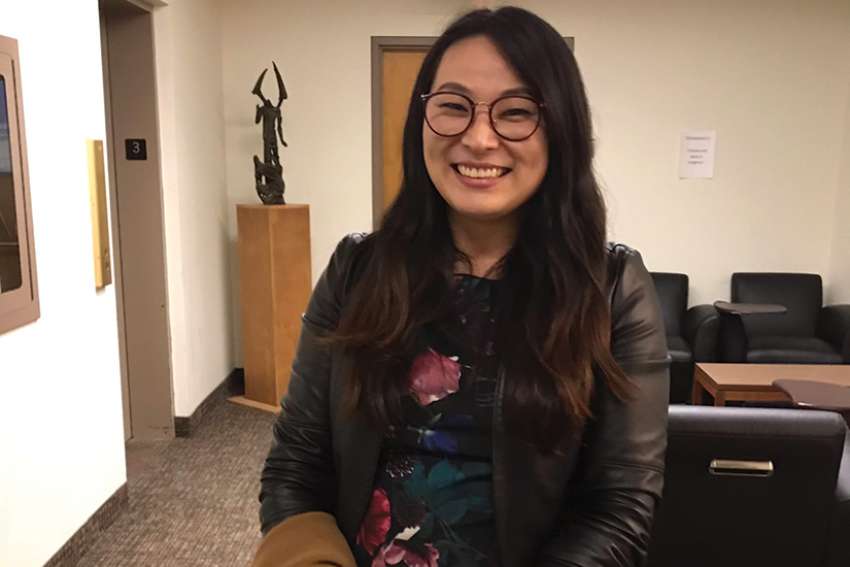“Because of how I grew up and what I experienced on the outside was too different, I felt deceived,” said Lim. “But, because of the faith that grounded me in middle and high school, I came back in time.”
Lim, 45, was the first student accepted to the new Interfaith Studies program at University of St. Michael’s College in University of Toronto, a new diploma program that incorporates Catholic principles of interfaith dialogue into a variety of world religions and spiritualities.
This program is the first of its kind in Canada and was inspired by the legacy of the Scarboro Missions in Toronto. For more than 30 years, Scarboro Missions’ interfaith department was at the centre of the interfaith community in Toronto, creating workshops, retreats and other resources for Canadian Catholics and people of other faiths.
In 2017, Scarboro Missions announced the closure of its Toronto chapter.
Faith, reason and experience play crucial roles in the development of a person, said Lim. She hopes that returning to her studies and delving deeper into interfaith studies, she will be better equipped to help young people who are seeking a sense of identity in their faith.
“A lot of young adults, from my counselling perspective, they struggle, they question,” said Lim, who was raised Catholic but describes herself as non-denominational Christian. “They don’t know if they believe that they are saved so they say ‘I’m scared to go to hell.’ … It’s a question of embodying their faith. But when you just leave the struggle alone, it causes a disconnect. It makes faith very superficial. (The young people) respond ‘if it’s not real for you, we will leave.’ ”
Born in Korea, educated in Japan and the UK, and eventually continuing graduate studies in Toronto, Lim remembers the unique struggles of each new culture she encountered growing up.
Lim’s faith experience builds on her extensive academic history as a practising psychotherapist at the Christian Counselling Service. With a Masters in Special Education and a Masters in Pastoral Studies, Lim hopes to incorporate a diploma in interfaith dialogue into her practice.
Lim also works as the youth director at a Presbyterian church in downtown Toronto. She said a majority of the children she encounters in the church’s after-school program are Muslim, but there isn’t a space for the young people to interact outside of these programs.
“They become familiar with the Church, but there isn’t really a space or time for the children to mingle with each other,” said Lim. “It’s the crucial, critical time to become friends. But we miss that time. We don’t try to mingle, or dialogue. We miss a chance.”
Dominican friar Darren Dias is an associate professor of the Interfaith Studies program. He said that offering an interfaith program in a multicultural city like Toronto just makes sense.
“It makes sense to offer a program to people who are not experts about their neighbours,” he said. “Young people live in very diverse worlds, where their friends are from different backgrounds. And we know statistically that Roman Catholics marry non-Catholics, so we have at the heart of the Church families that are of mixed religious traditions. A program like this helps us understand what that means.”
On her acceptance to the program, Lim touched base with Dias to start an Interfaith Eco Woman’s group. “We’ll cook together with an understanding of halal, of kosher practices, of why Hindus and Buddhists are vegetarian,” she said.
(Romen, 24, is a third-year English and Classics student at Brock University in St. Catharines, Ont.)


